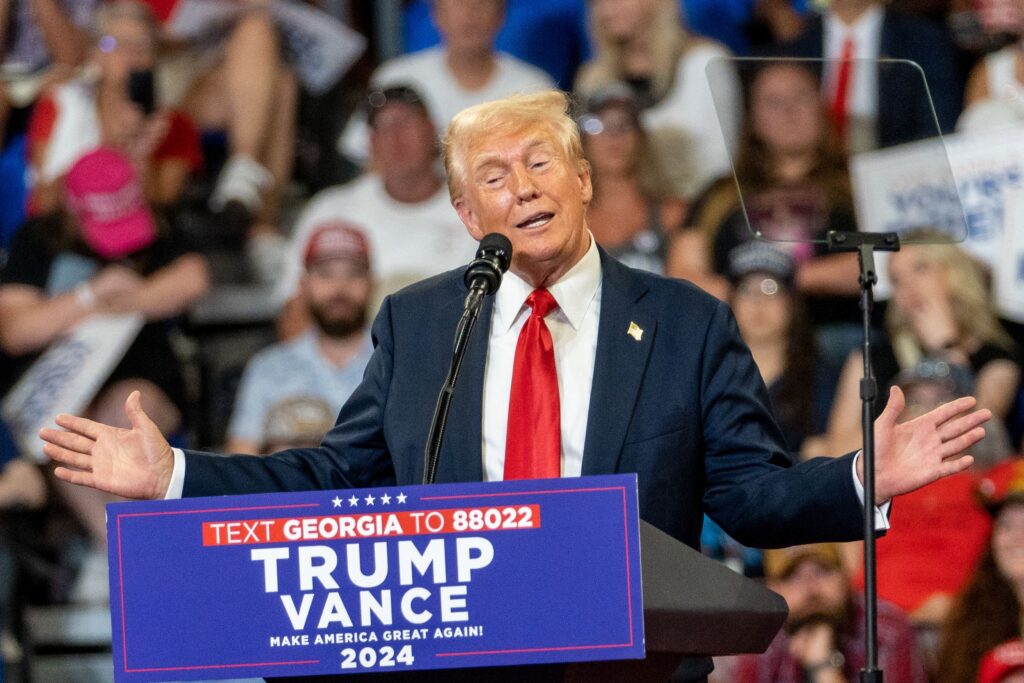The Trump administration has warned Columbia University that it must make major changes to one of its academic departments. This warning comes after federal officials decided to withdraw $400 million (€367 million) in funding from the university. They also plan to review an additional $5 billion (€4.6 billion) in funding.
Federal Government’s Demands
Federal authorities say Columbia University must restructure its Middle Eastern, South Asian, and African Studies Department. They want this department to be placed under “academic receivership” for five years. The government claims that the university has not done enough to address antisemitism on campus.
Officials also insist that Columbia University adopt a new definition of antisemitism. This change must happen before any discussions about future funding. The university is also required to reform its admissions process to follow the new directives from the administration.
The federal government expects Columbia to comply immediately with these conditions. If the university does not follow the instructions, it could lose significant federal support.
Tensions Rise After Protests
This latest push by the Trump administration comes after a series of protests at Columbia University. In 2023, students led pro-Palestinian protests on campus. These demonstrations caught the attention of federal officials, who are now demanding more control over the campus environment.
In connection with these protests, the government arrested Mahmoud Khalil, a former student leader. Khalil had been a spokesperson for the pro-Palestinian group at Columbia. He graduated in December with a Master’s in International Studies. Khalil was arrested over the weekend in New York and is currently being held at a detention center in Louisiana.
His lawyers argue that his arrest and potential deportation are unconstitutional. They say that it is a violation of his rights to deport activists for their political beliefs. However, the Trump administration has shown no signs of backing down.
Columbia’s Response
Columbia University has condemned the federal government’s demands. Professor Joseph Howley spoke out against the administration’s interference, saying, “If the federal government can dictate academic restructuring, we no longer have universities.” His comment reflects concerns from many in the academic community about government overreach into university affairs.
In addition to the federal government’s pressure, Columbia University has also taken action on campus. The university announced that it would discipline students who participated in the occupation of Hamilton Hall. Some students have been suspended or expelled for their involvement.
Federal Scrutiny of U.S. Universities
Columbia University is not the only school facing increased federal scrutiny. The U.S. Department of Education is now investigating over 50 universities for alleged racial discrimination. This investigation is part of a broader government effort to hold universities accountable for how they handle issues of race, religion, and political activism.
Federal officials say that universities must do more to ensure that their campuses are free from discrimination. They also want schools to take stronger action against antisemitism. As a result, many universities are now under pressure to change their policies and practices to comply with the administration’s expectations.
The Debate Over Academic Freedom
The government’s demands have sparked a debate about academic freedom in the United States. Critics argue that the government should not interfere in university affairs. They believe that universities should be independent and able to set their own policies without outside influence.
On the other hand, supporters of the government’s actions say that universities must take responsibility for creating safe and inclusive environments. They argue that antisemitism and discrimination have no place on campuses, and universities must do more to address these issues.
What’s Next for Columbia University?
The future of Columbia University’s relationship with the federal government is uncertain. The university is now faced with a difficult choice. It must either comply with the government’s demands or risk losing important funding. If Columbia chooses not to comply, it could face major financial consequences.
This situation is part of a larger trend in which the federal government is increasing its oversight of U.S. universities. As tensions rise between the Trump administration and higher education institutions, many wonder what this means for the future of academic freedom in the United States.


